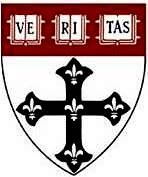The war against terrorism reached its peak last year when the military began its operations in the Swat region of Pakistan. Every day brought news of death and suffering. Besides those who were killed or injured, there were those four million who had left their homes in search of a shelter. Some settled in refugee camps set up by governmental and non-governmental organizations. A few rented houses in other cities. But initially, many had to spend their life in open grounds until help arrived.
In July 2009, I happened to visit one of the refugee camps in Jalalah, Mardan, as part of team of faculty and students of Peshawar Medical College, who were conducting a survey of the psychosocial services for IDPs. The survey was completed successfully, but we had a heart wrenching experience. The camp’s physical structure was commendable, which I believe was the result of the countries experience with a major earth quake in the recent past. However, the services were nowhere near enough. Several NGOs were running small health centers in the camp, with a basic set of services and very limited supply of drugs. A number of refugees, when learned that I am a physician, came running after me, pulling my arm begging me to help their loved ones. I saw a very old lady who had suffered a stroke ten days ago and was lying in scorching with no medicine. I heard the story of a young woman who gave birth to a baby with no medical assistance, and the baby died of infection. Psychiatric services were non-existent, as were any special facilities for the disabled. During our survey, we identified many children who were still not able to sleep because of what they had seen. The stories went on and I started getting uncomfortable. Luckily then, I got the chance to work on a collaborative project of International Development & Relief Foundation (IRDF) and Pesahwar Medical College. The project involved establishment of a Maternal, Neonatal & Child Health Center for these displaced persons. The project began in August 2009. Equipment was purchased and staff was hired. A reporting system was put in place and services started by end of August. These included services for expecting ladies and their newborn children, as well as children in general. A general medical outpatient clinic was also functional. Laboratory and pharmacy services were added alongside and by end of September home visits of Lady Health Workers had also started.
The greatest contribution of this project, I believe, is the provision of maternity services to the IDPs when there were none available inside or outside the camp. The free laboratory services provided by the center are also the only facility for the IDP population in the area. Since the arrival of IDPs in the region, drug prices in the market had risen due to high demand, and in this time, provision of free drugs to the needy by our MNCH center was of extreme importance.
Near the end of 2009, the IDP population had started decreasing and our project team decided to open up the services for local population with minimal user fees. From a sustainability point of view, the continuation of this center as a permanent facility is ideal. Since the locality of Jalalah until this time, lacked a well equipped maternal and child health service, the establishment of this center has been a significant contribution in improving the health care of this community. The general medical clinic is also now open to the natives of Jalalah and surrounding region and benefiting the host community as well.
It has been a satisfying experience helping those in great need. The war is not over though, and I hope to see a peaceful Pakistan someday.
Usman Raza, MD MS
Harvard School of Public Health Alumnus

1: A child in Jalalah IDP camp, trying to cool himself by bathing under a hand pump on a hot summer day.

2: Children of displaced families in a play area inside the IDP camp, trying to entertain themselves.

3: A doctor attending to a young boy in the MNCH Center of Jalalah.

4: A happy mother, after delivering her baby in the MNCH Center under supervision of qualified staff.

5: Polio vaccination drops being given to a baby at the MNCH Center.

6: Medical assistants registering patients in the waiting area next to the medical clinic.

7: IDPs being given vocational training at a center inside the Jalalah camp.
Original article can be found on Harvard affiliate Dr. Sabeena J. Khan's website: http://beatdisability-byembracingit.posterous.com/11587140


With the breathtaking bloom of spring comes one of the year’s most mindbogglingly intense garage sale events in the nation, and perhaps even in the entire world! The Afflicted War Heroes’ Annual Garage Sale validates the bona fide statement: One man’s trash is another man’s or woman’s treasure!With the breathtaking bloom of spring comes one of the year’s most mindbogglingly intense garage sale events in the nation, and perhaps even in the entire world! The Afflicted War Heroes’ Annual Garage Sale validates the bona fide statement: One man’s trash is another man’s or woman’s treasure!
ReplyDelete